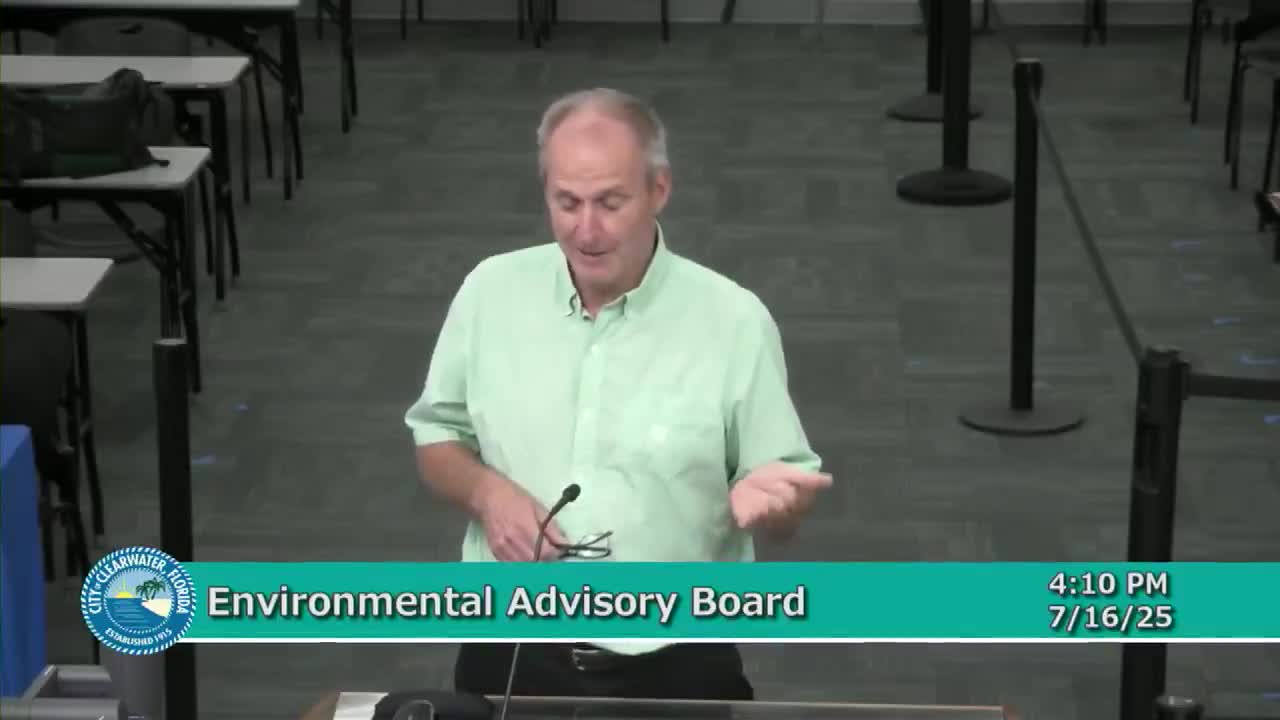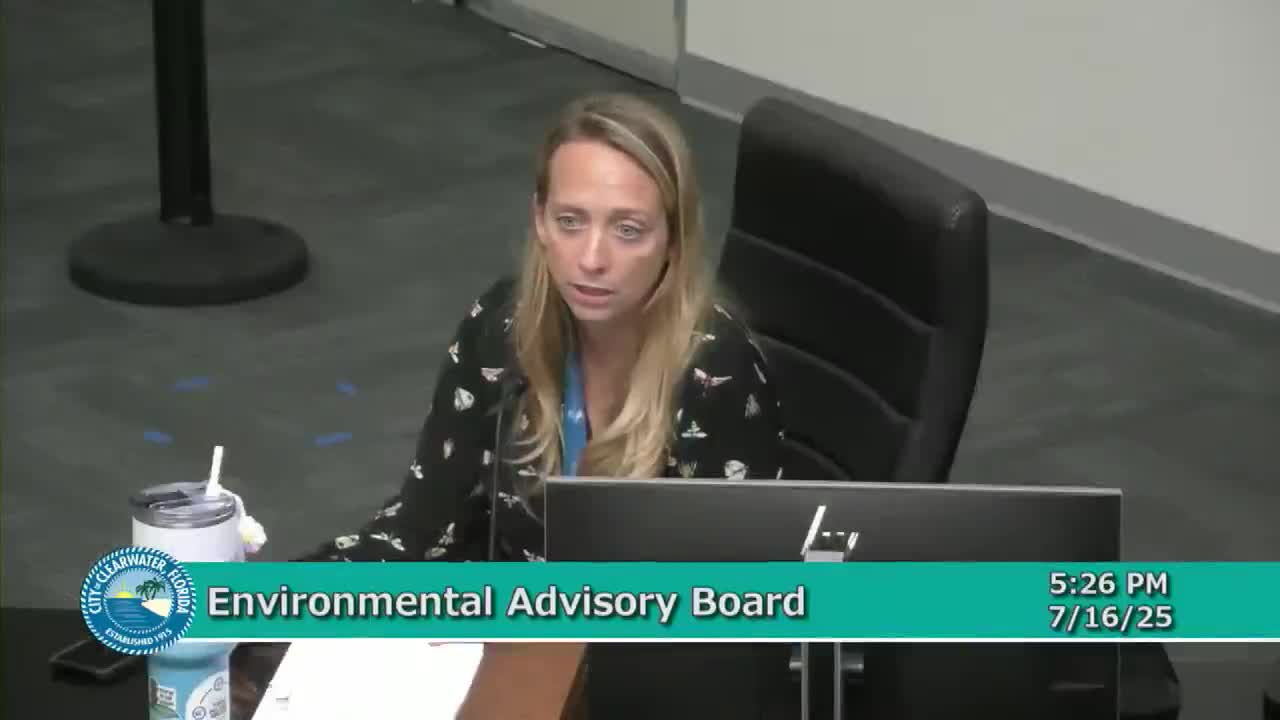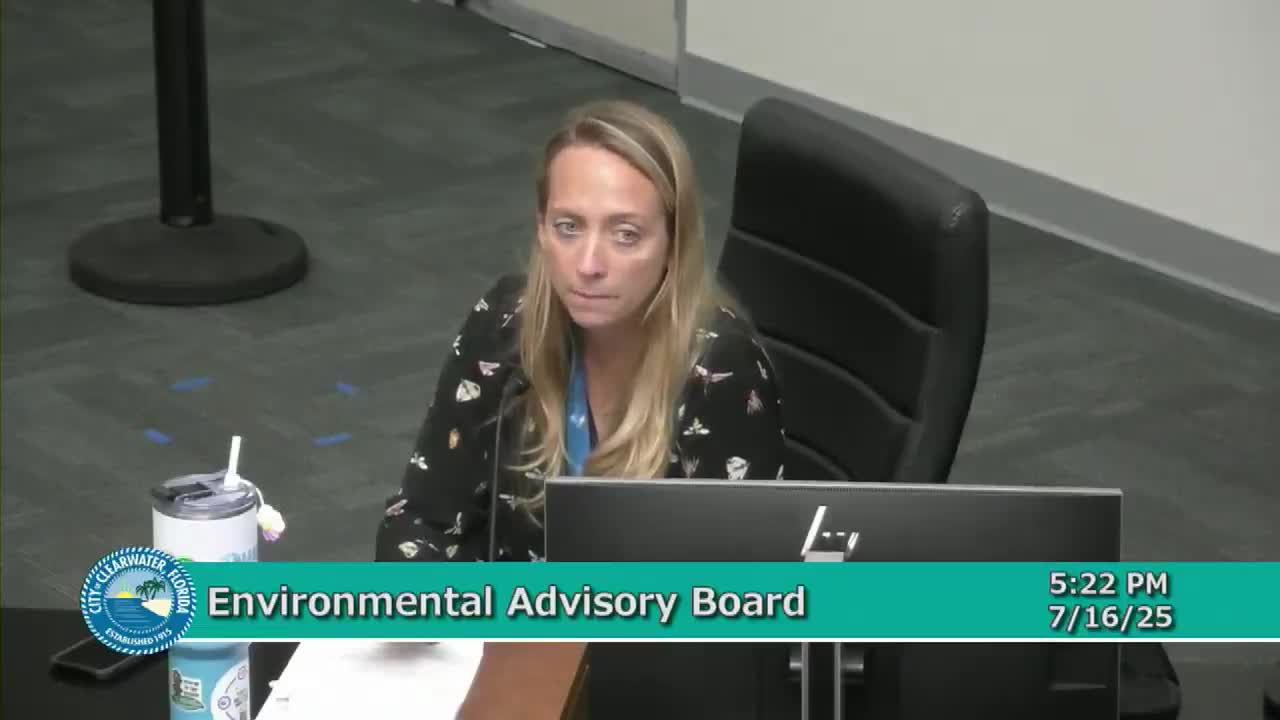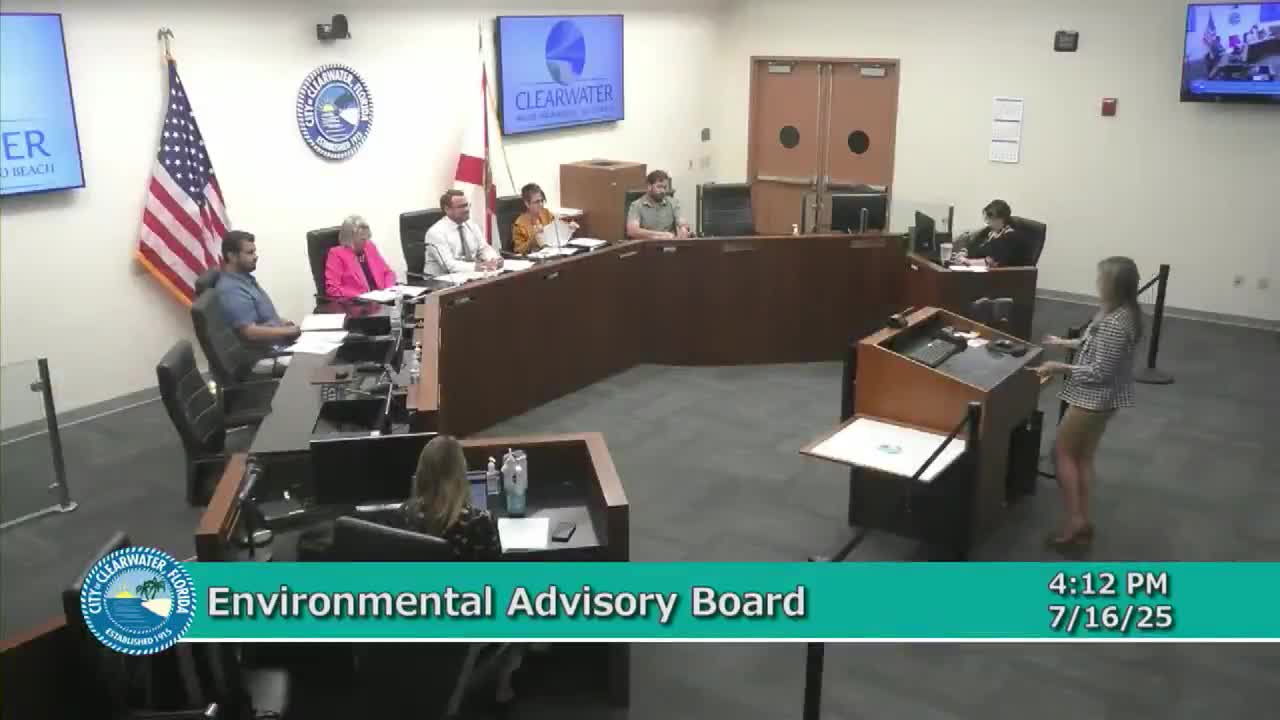Article not found
This article is no longer available. But don't worry—we've gathered other articles that discuss the same topic.

Environmental Advisory Board approves letter backing slow-speed zone on Stephenson Creek after manatee sighting

City to launch adopt-a-drain program; transfer-station solar array online and more solar projects planned

City finalizes state-funded vulnerability assessment and moves to translate scenarios into shovel-ready projects

